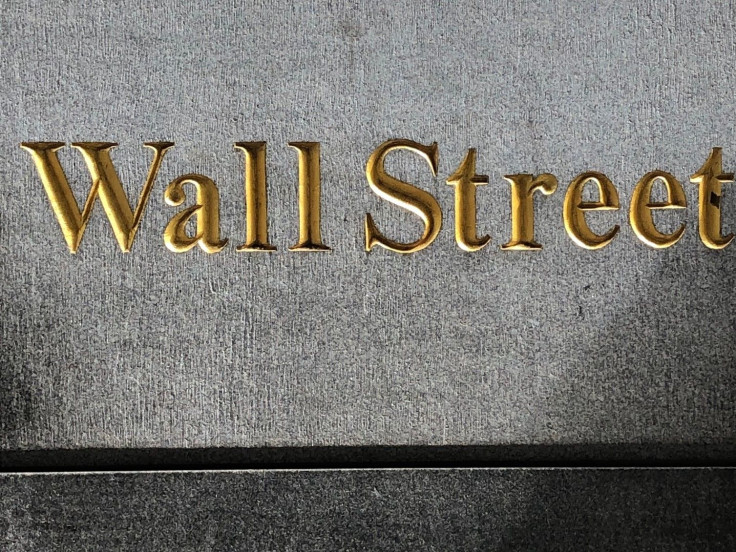Thursday’s Stock Market Open: US Equities Fall As Another 3 Million File For Jobless Claims

KEY POINTS
- 2.981 million people filed new claims for unemployment insurance last week.
- 36.5 million have lost their jobs in past two months
- Republicans rejected a $3 trillion stimulus package drafted by House Democrats
Update: 12:05 p.m. EDT:
U.S. stocks remained in the red as of noon Thursday.
The Dow Jones Industrial Average dropped 83.78 points to 23,051.27, while the S&P 500 fell 19.94 points to 2,800.06 and the Nasdaq Composite Index tumbled 90.56 points to 8,772.61.
In Europe markets finished lower, as Britain’s FTSE-100 fell 2.75%, while France’s CAC-40 tumbled 1.65% and Germany’s DAX dropped 1.95%.
Crude oil futures jumped 3.64% at $26.21 per barrel, Brent crude rose 3.53% at $30.22.
Original story:
U.S. stocks tumbled on Thursday as nearly 3 million people filed for unemployment insurance benefits last week.
The Dow Jones Industrial Average dropped 196.7 points to 23,051.27, while the S&P 500 fell 23.65 points to 2,796.35 and the Nasdaq Composite Index tumbled 65.69 points to 8,797.47.
The Labor Department said on Thursday that 2.981 million people filed new claims for unemployment insurance last week, bringing the total number during the coronavirus pandemic to almost 36.5 million.
E.J. Dionne of the Brookings Institution tweeted: “Nearly 3 million new jobless claims underscore [Federal Reserve Chairman Jerome Powell’s] point: The choice is to act forcefully now or to sink into long-term stagnation. [Depression-era president] Herbert Hoover’s travails show which is the better path.”
Republicans rejected a $3 trillion stimulus package drafted by House Democrats to support the U.S. economy, but a compromise deal may emerge later.
Dr. Soumya Swaminathan, the World Health Organization’s chief scientist, warned it may take five years to control the spread of coronavirus.
Thus far, more than 4.3 million people have been infected around the world, and nearly 300,000 have died.
Zach Pandl, Goldman Sachs’ co-head of global foreign exchange, rates and emerging markets strategy, said the Federal Reserve may have to consider negative interest rates if the U.S. sees a second wave of coronavirus cases. Although he doubted that would be helpful.
“There are a lot of variables in terms of really how the economy opens here. It’s going to be very uneven,” said Gregory Faranello, head of U.S. rates trading at AmeriVet Securities. “From a capital perspective and a leverage perspective, the Fed can grow the existing programs that they have online.”
“Views are beginning to firm that the 2020 bear-market rally may have run its course,” said Matthew Sherwood, head of investment strategy for multi-asset at Perpetual Investment Management Ltd.
Overnight in Asia, markets dropped. The Shanghai Composite tumbled 0.96%; Hong Kong’s Hang Seng dropped 1.45%; while Japan’s Nikkei-225 fell 1.74%.
In Europe markets traded lower, as Britain’s FTSE-100 fell 3.3%, while France’s CAC-40 tumbled 2.68% and Germany’s DAX dropped 2.66%.
Crude oil futures jumped 2.77% at $25.99 per barrel, Brent crude rose 2.84% at $30.02. Gold futures climbed 0.39%.
The euro edged down 0.21% at $1.0795 while the pound sterling slipped 0.34% at $1.2193.
© Copyright IBTimes 2024. All rights reserved.





















